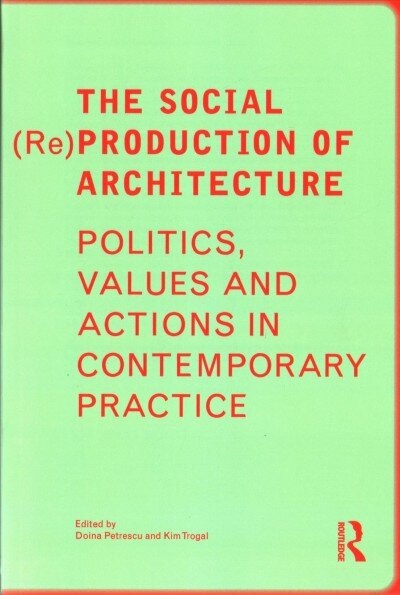The Social (Re)Production of Architecture brings the debates of the 'right to the city' into today's context of ecological, economic and social crises. Building on the 1970s' discussions about the 'production of space', which French sociologist Henri Lefebvre considered a civic right, the authors question who has the right to make space, and explore the kinds of relations that are produced in the process. In the emerging post-capitalist era, this book addresses urgent social and ecological imperatives for change and opens up questions around architecture's engagement with new forms of organization and practice. The book asks what (new) kinds of 'social' can architecture (re)produce, and what kinds of politics, values and actions are needed. The book features 24 interdisciplinary essays written by leading theorists and practitioners including social thinkers, economic theorists, architects, educators, urban curators, feminists, artists and activists from different generations and global contexts. The essays discuss the diverse, global locations with work taking different and specific forms in these different contexts. A cutting-edge, critical text which rethinks both practice and theory in the light of recent crises, making it key reading for students, academics and practitioners.
